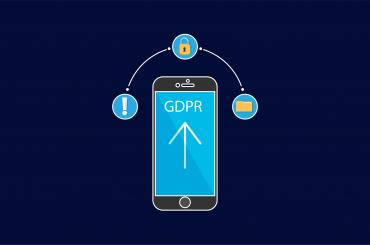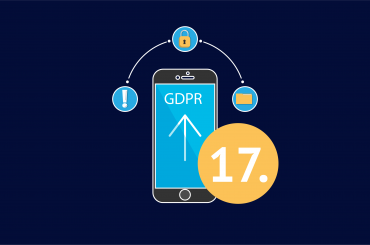The right to be forgotten law is a powerful right for protecting an individual’s personal data. As per this, an individual can raise a request to completely remove personal information from the internet.
In this article, we provide a detailed guide on the right to be forgotten law.
Contents
What Is The Right To Be Forgotten Law Under GDPR?
The GDPR protects the right to be forgotten law. This grants greater control over individuals over their personal data. They can submit a request to the organization processing their data and request its permanent removal.
The right to be forgotten request can be raised in an oral or written format. The following details need to be provided along with the request:
- The personal details of the person submitting the request.
- The details of the person whose data is to be removed.
- Clearly laid down reasons for requesting the removal of information.
- The details of the information need to be removed.
- A signed declaration that all the information is correct.
Is Right To Be Forgotten Law Only In EU?
The right to be forgotten law was born in the European Union. Due to this, GDPR is most often cited while referring to the right to be forgotten. However, the right to be forgotten law is applicable in other countries as well.
These are the conditions when the right to be forgotten law is applicable outside the EU:
Domestic Laws
Many countries such as Canada have implemented their own laws for the right to be forgotten. Further, in other countries such as India, the court has recognized that the right to be forgotten is available.
If an organization has collected the data of a citizen of these foreign countries, then it will have to comply with the right to be forgotten law there. The implementation of the right to be forgotten is different in every country.
European Union Citizens
The right to be forgotten law under the GDPR is applicable when the data of an EU citizen is collected and processed. This applies to EU citizens living abroad as well as foreign companies working in the EU.
For example, if an EU citizen is living in Australia and the data is processed by a company operating in Australia, it will still be regulated by the right to be forgotten law. The individual will have the right to request the removal of information.
Further, if an Australian company is working in the EU, it will have to follow the right to be forgotten. The company does not even need a local office within the EU. Simply processing the data of EU citizens is enough.
Does Right To Be Forgotten Law Allow Companies To Refuse Removal?
As per the right to be forgotten, companies are allowed to refuse the removal of information in certain cases. However, in such situations, the company still needs to respond within 30 days and provide a clear reason for this.
Here are some of the conditions in which a company does not have to remove information:
- The processing of data furthers the public interest.
- The data is collected in compliance with a law or a legal order.
- The data is necessary for scientific development.
- The data belongs to a public figure.
- The data is necessary for public health purposes.
- The organization is exercising its freedom of speech and expression by processing the data.
FAQ
-
What does the right to be forgotten to mean under GDPR?
The right to be forgotten or the right to erasure means that an individual can raise a request to remove personal information from the internet.
-
Who has the right to be forgotten?
The right to be forgotten is protected by the GDPR in the EU and domestic laws in other countries. As per this, any individual can contact an organization and request the removal of personal information.
-
Is the right to be forgotten a human right?
The right to be forgotten is recognized under the right to privacy. The right was granted by legislation instead of international treaties of human rights.
-
Does everyone have a right to be forgotten?
This depends on the country you are living in. Every EU citizen has the right to be forgotten. Apart from this, it depends on whether the country of a particular individual has recognized this right.





